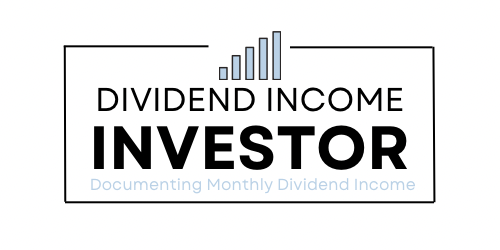Is it a good idea to sell stock to pay off debt — Factors to consider when deciding if you should sell investments to pay off liabilities. I am not a licensed advisor and this article is not financial advice.
Wondering whether or not it’s a good idea to sell stock to pay off debt?
Personally, I prefer a combination of both. I think it’s important to always automatically save a percentage of your income to take advantage of compound interest and build the right financial habits.
However, there are some situations where it makes sense to sell stock to pay off debt.
In this post, I will look at factors to consider when deciding if you should sell investments to pay off debt.
Let’s dive in.
Is It A Good Idea To Sell Stock To Pay Off Debt?

Is It A Good Idea To Sell Stock To Pay Off Debt?
In theory, yes, it is a good idea to sell stock to pay off debt.
Simply put, you can increase your cash flow by lowering your monthly debt payments.
In turn, you will have more money to invest in the future, and you will save money on interest costs.
However, it’s not always that simple of a choice. There are other factors to consider when deciding to sell stock to pay off debt.
It Depends On The Interest Rate Of Your Debt
If the interest rate on your debt is 3.45% and your investment returns are over 20%, then it does not make sense to sell stock to pay off debt.
I mean, why would you forfeit 17%? It doesn’t make any sense. As long as interest rates remain low, it makes sense to pay your debt off slowly and keep your investments.
Alternatively, if you have credit card debt and the interest rate is 19.99% but your investments are only returning 4% annually, then it does make sense to sell stock to pay off debt.
In that scenario, your debt is costing more than your investments are generating, so you should sell stock to pay off debt.
It Depends On Your Financial Situation
To put it bluntly, if you can hardly afford to pay your bills and you have a negative net worth, you should pay off your debt.
If you are already having a hard time financially, the last thing you want to do is invest money you can’t afford to lose.
At this point in your financial journey, you should sell investments and pay off your debt. It will be the quickest way to free up cashflow.
On the other hand, if you have only a few thousand worth of low interest debt that you could pay off quickly with your income, it’s probably a bad idea to sell stocks. In this scenario, you are preventing your investments from compounding.
“The first rule of compounding is to never interrupt it unnecessarily.” — Charlie Munger
Is Your Debt Affecting Your Credit Score?
Another factor to consider is whether your debt situation is affecting your credit score.
If you are carrying a high balance that is close to your credit limit, it could be lowering your credit score.
In turn, a low credit score will lead to paying higher interest rates or being declined by lenders.
If your debt situation is negatively affecting your credit score, selling investments to pay off debt is worth considering.
Related: Improve Credit Score Tips – Can I Improve My Credit Score?
Compound Interest
“Compound interest is the 8th wonder of the world.” — Albert Einstein
Once you understand the power of compound interest, you don’t just see one dollar as one dollar anymore.
One dollar compounded at a 7% annual rate for 30 years is worth $7.61.
So, every dollar you can invest now, is worth $7.61 in 30 years.
At that rate of compound interest, $100 is worth $760 in 30 years.
Furthermore, $100,000 turns into $761,000.
If you understand compound interest, it becomes more difficult to want sell investments.
Therefore, you really have to consider the interest rate of the debt vs the return rate on the investments.
My Personal View
Personally, I do not think it’s a good idea to sell investments to pay off debt.
In my view, it’s better to keep your investments and direct all disposable income towards paying off debt.
At the same time, I think you should still continue to save a percentage of your income.
This will form the right financial habits and increase your net worth from two angles.
I believe in this method because it worked for me. I recently paid off my student loan after years of simultaneously paying off student debt and investing.
If I had focused solely on my student loan, I would’ve had a net worth of zero when it was paid off.
Instead, I have a stock portfolio that pays me over $1,100 annually in dividend income and more cash flow than ever to throw at it.

Final Thoughts — Is It A Good Idea To Sell Stock To Pay Off Debt?
In summary, it is usually a good idea to sell investments to pay off debt.
Most of the time, you will save yourself money.
However, in some cases, it doesn’t make sense to sell investments to pay off debt.
For example, if you have low interest debt and your investment returns are significantly outpacing that rate, it does not make sense to sell investments to pay debt.
Basically, if you have high interest rate debt, if it’s affecting your credit score, or if your personal financial situation is a mess, you should sell stock to pay off debt.
Otherwise, it’s probably better to keep your investments and let compound interest run its course.
Similar Articles On Investing & Personal Finance
Improve Credit Score Tips: Can I Improve My Credit Score
Saving vs Debt Payoff: Should You Save Money or Pay Off Debt?
Student Loan Debt: 11 Practical Ways To Quickly Pay It Off
I am not a licensed investment or tax adviser. All opinions are my own. This post may contain advertisements by Monumetric. This post may also contain internal links, affiliate links to BizBudding, Amazon, Bluehost, and Questrade, links to trusted external sites, and links to RTC social media accounts.
Connect with RTC
Twitter: @Reversethecrush
Pinterest: @reversethecrushblog
Instagram: @reversethecrush_
Facebook: @reversethecrushblog
Email: graham@reversethecrush.com


 How To Financially Get Ahead
How To Financially Get Ahead
